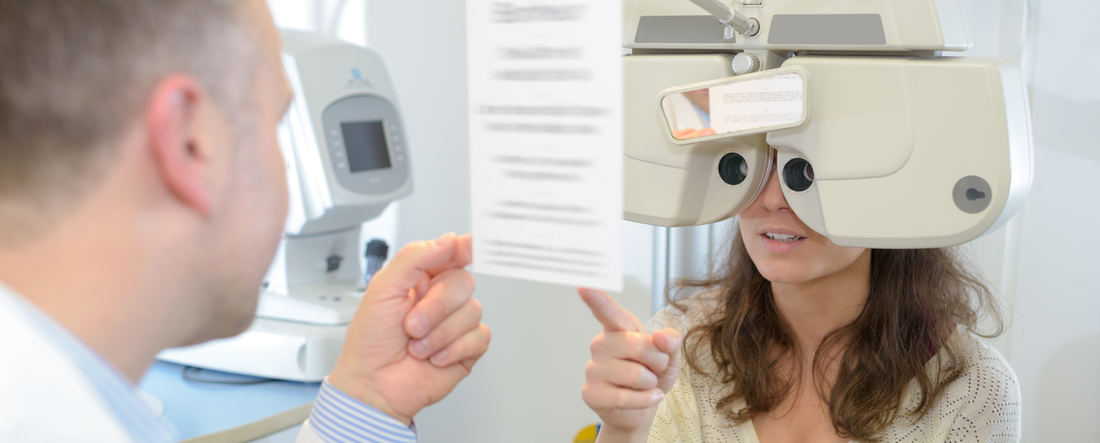If you've ever asked yourself "do I need glasses?" then this post is for you. If just a passing curiosity, or a serious thought you've had for a long time, learning the signs that you might need glasses will help you. Whether this post gives you peace of mind or prompts you to make an eye appointment, you're in the right place. Learn how to tell if you need glasses today. Whether you need them or not you'll know the signs if you happen to need them in the future. So regardless of why you came to this post, helpful knowledge awaits you!
Signs That You Might Need Glasses
It should go without saying, consulting an optometrist is the only way to know for sure if you need glasses. However, before you make that appointment, these signs can help you decide. We've assembled a list of common signs cited by optometrists as hints that you might need glasses.
-
Nearsightedness
Myopia, or difficulty seeing objects at a distance, is a common condition suffered by those needing prescription lenses. If you experience persistent persistent difficulty seeing objects far away, such as the television or signs while driving, schedule an eye appointment.
-
Farsightedness
This is the opposite of nearsightedness, i.e. difficulty seeing objects up close. More typical in middle-aged and older individuals, reading trouble usually indicates the problem. Younger patients with farsightedness may experience eyestrain or headaches after looking up close for long periods of time. They also may experience intermittent blurred vision at both distance and near.
-
Presbyopia
Generalized loss of near focusing ability that happens to most everyone at 40 and over. If you find yourself pulling your phone further away from you to see clearly, that is usually the first indication the process of presbyopia has started!
-
Cataracts
Cataracts form over your lifetime. Signs that cataracts are forming are a change in vision causing blurriness, an increase in glare from the headlights on cars at nighttime, or needing additional light to see low contrast images. If you are experiencing any of these, make sure to get to your doctor to evaluate the level of cataract and if glasses can improve your vision or if surgery is indicated.

-
Computer Vision Syndrome
Something we know quite a bit about, computer vision syndrome, if the symptoms are persistent and common, can be a sign you need glasses. Many people experience the symptoms of CVS regularly, but some get hit harder. Learn the symptoms and consult with a doctor if you worry you might need glasses.
-
Night Vision
Decreased night vision, although often overlooked, may signal the need for glasses. If at night things you once could confidently see now seem to fade into the black, consider talking to an eye doctor about glasses.
-
Light to Dark Transitions
Again, hard transitions from dark to light (and vice versa) don't immediately make the sufferer consider glasses. However, if you struggle in this way, you may need them!
-
Seeing Halo's
Seeing light colored "halo's" might indicate the development of cataracts, or a night vision issue.

-
Persistent Blurred Vision
Blurred vision does not, by itself, mean you need glasses. That said, if your blurry eyes persist beyond a reasonable amount of time, you might need glasses.
-
Double or Wavy Vision
If you regularly experience this unsettling visual difficulty, you may need glasses.
-
Squinting
Squinting to see more clearly typically signals an eye problem. Some glasses wearers report slightly improved vision when squinting without their glasses.
-
Headaches
Just like blurred vision, headaches don't automatically mean you need glasses. However, some people have simply learned to live with their eye problems, and don't notice them. In these cases, persistent headaches often seem the only noticeable symptom.

Staying Informed
These signs help answer the problem of how to know if you need glasses. However, this list is only a start. If you read this and feel you need to learn more, now's the time. Read a comparison of nearsightedness and farsightedness. You won't regret it.





 UK site
UK site EU site
EU site US site
US site Canada site
Canada site